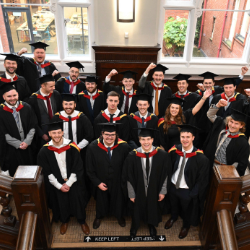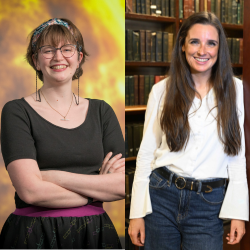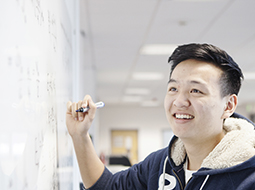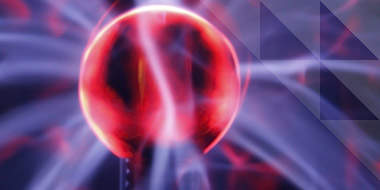-
Study
-
Quick Links
- Open Days & Events
- Real-World Learning
- Unlock Your Potential
- Tuition Fees, Funding & Scholarships
- Real World Learning
-
Undergraduate
- Application Guides
- UCAS Exhibitions
- Extended Degrees
- School & College Outreach
- Information for Parents
-
Postgraduate
- Application Guide
- Postgraduate Research Degrees
- Flexible Learning
- Change Direction
- Register your Interest
-
Student Life
- Students' Union
- The Hub - Student Blog
- Accommodation
- Northumbria Sport
- Support for Students
-
Learning Experience
- Real-World Learning
- Research-enriched learning
- Graduate Futures
- The Business Clinic
- Study Abroad
-
-
International
International
Northumbria’s global footprint touches every continent across the world, through our global partnerships across 17 institutions in 10 countries, to our 277,000 strong alumni community and 150 recruitment partners – we prepare our students for the challenges of tomorrow. Discover more about how to join Northumbria’s global family or our partnerships.
View our Global Footprint-
Quick Links
- Course Search
- Undergraduate Study
- Postgraduate Study
- Information for Parents
- London Campus
- Northumbria Pathway
- Cost of Living
- Sign up for Information
-
International Students
- Information for International Students
- Northumbria and your Country
- International Events
- Application Guide
- Entry Requirements and Education Country Agents
- Global Offices and Regional Teams
- English Requirements
- English Language Centre
- International student support
- Cost of Living
-
International Fees and Funding
- International Undergraduate Fees
- International Undergraduate Funding
- International Masters Fees
- International Masters Funding
- International Postgraduate Research Fees
- International Postgraduate Research Funding
- Useful Financial Information
-
International Partners
- Agent and Representatives Network
- Global Partnerships
- Global Community
-
International Mobility
- Study Abroad
- Information for Incoming Exchange Students
-
-
Business
Business
The world is changing faster than ever before. The future is there to be won by organisations who find ways to turn today's possibilities into tomorrows competitive edge. In a connected world, collaboration can be the key to success.
More on our Business Services-
Business Quick Links
- Contact Us
- Business Events
- Research and Consultancy
- Education and Training
- Workforce Development Courses
- Join our mailing list
-
Education and Training
- Higher and Degree Apprenticeships
- Continuing Professional Development
- Apprenticeship Fees & Funding
- Apprenticeship FAQs
- How to Develop an Apprentice
- Apprenticeship Vacancies
- Enquire Now
-
Research and Consultancy
- Space
- Energy
- AI Futures
- CHASE: Centre for Health and Social Equity
- NESST
-
-
Research
Research
Northumbria is a research-rich, business-focused, professional university with a global reputation for academic quality. We conduct ground-breaking research that is responsive to the science & technology, health & well being, economic and social and arts & cultural needs for the communities
Discover more about our Research-
Quick Links
- Research Peaks of Excellence
- Academic Departments
- Research Staff
- Postgraduate Research Studentships
- Research Events
-
Research at Northumbria
- Interdisciplinary Research Themes
- Research Impact
- REF
- Partners and Collaborators
-
Support for Researchers
- Research and Innovation Services Staff
- Researcher Development and Training
- Ethics, Integrity, and Trusted Research
- University Library
- Vice Chancellors Fellows
-
Research Degrees
- Postgraduate Research Overview
- Doctoral Training Partnerships and Centres
- Academic Departments
-
Research Culture
- Research Culture
- Research Culture Action Plan
- Concordats and Commitments
-
-
About Us
-
About Northumbria
- Our Strategy
- Our Staff
- Our Schools
- Place and Partnerships
- Leadership & Governance
- University Services
- Northumbria History
- Contact us
- Online Shop
-
-
Alumni
Alumni
Northumbria University is renowned for the calibre of its business-ready graduates. Our alumni network has over 253,000 graduates based in 178 countries worldwide in a range of sectors, our alumni are making a real impact on the world.
Our Alumni - Work For Us
Smart materials and surfaces are ones designed with particular properties and whose properties can be changed by external forces or interfacial interactions. Our research group design and research into novel functional/structural materials and fabrication strategies, often at micro/nano scales, to investigate into liquid-solid interactions and development of smart devices employing smart materials and surfaces. The group conducts fundamental and applied sciences for various applications in energy materials, sensors, healthcare wearables, acoustofluidics.
We use novel functional/structural materials and fabrication strategies, such as directed assembly of complex, nano- and micro-constructed soft materials, hybrid nano- and microfabrication methods, and embroidery for smart textiles.
We study:
- How bio-inspired micro- and nano-structured surfaces can shape liquids and create functional and tuneable properties including hydrophobicity, drag and tension.
- How liquid droplets can be efficiently manipulated employing various methods including acoustofluidics, Leidenfrost levitation, and mechanical metamaterials and microtransducers.
- How liquids can be effectively sensed for a wide range of applications in biomolecular interactions, material characterisation and environmental monitoring.
- How the added functionalities can be utilised for energy materials.
- How the added functionalities can be utilised for smart wearables.
We use a wide range of experimental techniques and approaches, including surface acoustic waves (SAWs), electrowetting (EWOD), the Leidenfrost effect (both bulk and selective), high speed video, contact angle goniometry and surface characterisation methods from laser scanning confocal microscopy (LSCM) to scanning electron microscopy (SEM) and atomic force microscopy (AFM).
We complement all we do with analytical and computational modelling, Lattice-Boltzmann, finite element and other complementary techniques ensuring a close and supportive collaboration between experiment and theory.
Our recent research has been conducted in collaboration with a range of UK and international universities and with the support of the UK Engineering & Physical Sciences Research Council (EPSRC), Innovate UK, The Royal Society, European Commission, and industrial partners.
We lead Special Interest Groups (SIGs) on "Acoustofluidics" and "Droplet and Flow Interactions with Bioinspired and Smart Surfaces" in the EPSRC-funded UK Fluids Network (UKFN).
Group leadership and contacts
Contact: Prof. Hamdi Torun and Dr Yifan Li
Academic team
Research relationships
Research from this group has been submitted to REF202 under UoA 12: Engineering.
To view research papers emanating from this group, please click here to view Northumbria Research Link, our open access repository of research output from Northumbria University.
Further information
Research
- Applied Statistics
- Quantum and Molecular Photonics
- Mathematics of Complex and Nonlinear Phenomena (MCNP)
- Northumbria Space Technology Laboratory
- Photovoltaics
- Solar and Space Physics
- Electrical Power and Control Systems
- Optical Communications Research Group (OCRG)
- Renewable Energy Technologies and Materials
- Smart Materials & Surfaces Laboratory (SMSL)
- Faculty Education Research Group
Get an insight into life at Northumbria with videos and 360 panoramas of the Department of Mathematics, Physics and Electrical Engineering
With a wide range of undergraduate, postgraduate and distance learning Mathematics, Physics & Electrical Engineering courses, whatever you want to get out of university, let us show you why you want Northumbria University, Newcastle!
Our Mathematics, Physics & Electrical Engineering students learn from the best – inspirational academic staff with a genuine passion for their subject. Our courses are at the forefront of current knowledge and practice and are shaped by world-leading and internationally excellent research.
Looking to study in with us in September? Our Undergraduate Open Day Events are the perfect opportunity for you to find out as much as you can about our wide range of courses and world-class facilities.
Latest News and Features

First cohort of Civil Engineering Degree Apprentices graduate from Northumbria
The inaugural cohort of Civil Engineering degree apprentices have graduated from Northumbria…

Space sector growth in the UK under spotlight at major industry event
The role the space sector is playing in driving economic growth in the UK was highlighted this…

Northumbria University STEM outreach project wins Institute of Physics award
Researchers from an outreach group at Northumbria University are celebrating after winning…

Northumbria researchers announced as winners of Future Leaders Fellowships
Two talented researchers from Northumbria University have been awarded a share of £120 million…

Northumbria expands results day support for students
Northumbria University is expanding and enhancing the support it provides to students receiving…

OLED materials have potential new uses in detecting pesticides for the farming industry
Researchers are set to shine a different kind of light on the farming industry after receiving…






